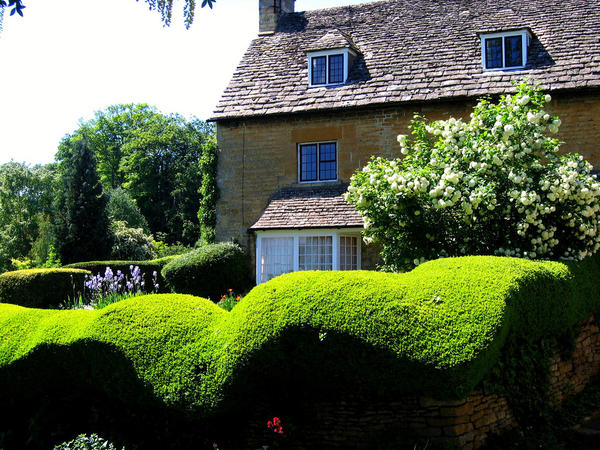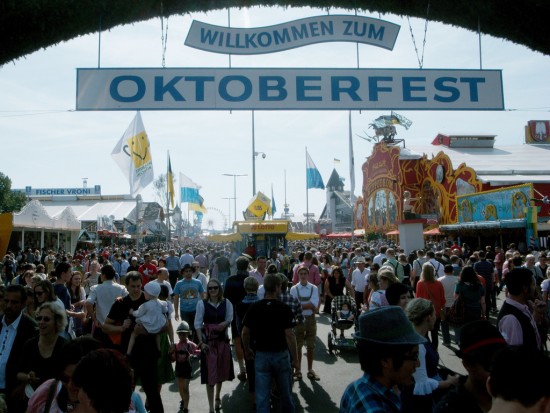One of the fastest growing forms of holiday accommodation is self-catering. Contrary to traditional forms of accommodation in which your needs are met by the hotel, B&B or guesthouse owners, self-catering means that you are responsible for your needs. It means that for the entire duration of your stay you reside in a holiday home that often far exceeds the level of luxury that traditional accommodation can offer. If you are contemplating a holiday and researching various types of accommodation, consider self-catering as well. Here are ten tips to get you moving in the right direction when evaluating this type of holiday.

- Self-Catering Holiday TipsUGArdener / Foter / CC BY-NC
1. Finding A Holiday Home – There are two methods to find the right property. Owners of holiday homes will often use travel agents as middleman so your favorite travel agent will likely be able to help. Some owners will only list their property privately and directly to you. In such case you should refine your search for the precise area and properties will likely appear on local web boards.
2. When To Book – By no means is self-catering holiday cheaper than traditional forms of accommodation. After all, the holiday villa or cottage (typical self-catering units) include higher level of spec and in many cases even an onsite private pool. Savings are substantial should you book in between seasons.
3. Included, Not Included and Nice To Have – The spec of holiday home will vary from region to region and from one type of home to another. Before you commit yourself to one property make a list of the available spec and compare it against what you deem ‘needed’ to make your stay perfect. You can try and negotiate with the owners about adding the missing items, ask for help in renting it locally (for example a disability scooter for an elderly member of the family) or search for an alternative accommodation.
4. Leaving A Deposit – Most holiday properties are booked many months ahead, some a year ahead. You have to remember that a single property can only be occupied once at one time. A deposit of up to 30% is therefore required to secure your booking. When booking via a travel agent, check which government-backed credentials they hold in case they run into difficulties prior to your holiday. If booking privately try and reduce the required deposit, as government-backed schemes will not apply.
5. Bringing Pets – Before bringing the family pet you must clear it with the owners. Due to the luxurious nature of most holiday properties, pets are not allowed to stay indoors. Owners are simply concerned about damage, which will be hard to fix in the busy season due to back-to-back occupancies. Otherwise, you may be refused access in some cases, so do check beforehand.
6. Prior To Your Arrival – The biggest mistake self-catering holidaymakers make is forgetting to arrange sufficient transportation. Remember that due to the nature of this holiday, transportation and transfer from the airport or seaport to the holiday home is your responsibility to arrange. Consider car hire or arrange a taxi prior to your arrival particularly in rural areas. Having to arrange it on the day with tired family members around you and luggage to carry is no picnic at the beach.
7. When To Check-in and Check-out – In the busy season and in popular areas, holiday homes may be booked solid for weeks at a time. Owners have just hours between guests leaving and new guests coming to clean the property and for general up keeping. This is only possible if guests keep to the set check-in and check-out times.
8. Using The Swimming Pool Safely – Luxurious homes will often include an indoor or outdoor pool, especially in warn climates and at certain times of the year, such as south of France and Corsica villas often include a pool. When in use, it is your responsibility for the safety of its users in particular children. Ensure that an adult is able to oversee its use at all times.
9. Contents Insurance – Travel insurance is essential regardless of the type of holiday, its destination or duration. However, when it comes to self-catering you also require a type of insurance to cover possible damage to the property. Accidental it may be, however damage to a luxury property is your responsibility to sort and it can cost quite a bit. Check with your insurers that your travel insurance covers content as well as health. Otherwise, consider getting such cover.
10. Don’t Limit Yourself Indoors – It is easy to arrive at your destination home and simply stay indoors for a days at a time. You will be missing out as most properties are located in scenic areas and you will enjoy the region more by exploring it by foot, cycle or car.
[box]Enjoy your holiday.
Guest post by Affair Travel Ltd of London UK.
[/box]



1 Comment
Luxury Apartment in Harrogate
One of the important things you have to know when choosing a self-catering holiday are the eating out options you have in the area where you are looking to stay. The Internet is a great tool for you to use in order to research the areas and options available to you.Check particularly the terms regarding a cancellation.When paying for accommodation on a self-catering holiday, you need to make sure that the payment you make is a traceable one.
Comments are Closed.